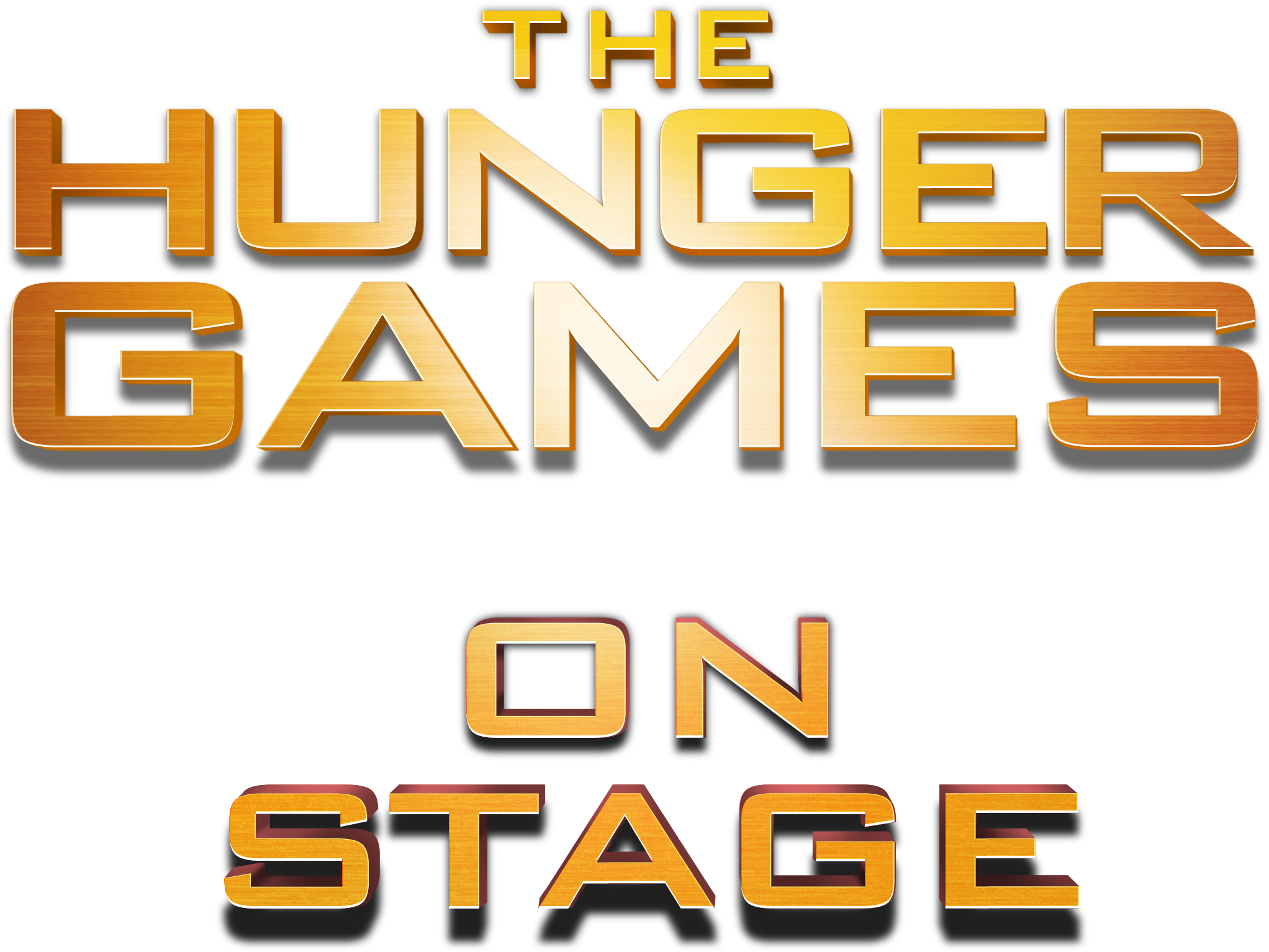When you think about dystopian novels that changed the world, one name always comes up – Hunger Games. It’s not just a story; it’s a cultural phenomenon that has captured the hearts of millions around the globe. From its gripping plot to its unforgettable characters, Hunger Games is more than entertainment – it’s a mirror reflecting society’s deepest fears and aspirations.
So why does this story resonate so deeply? Well, let’s be real here. Hunger Games isn’t just about kids fighting in an arena. It’s about survival, resistance, and the human spirit. And honestly, who doesn’t love a good underdog story? But before we dive into all the juicy details, let’s take a moment to appreciate how this series became such a massive hit.
From its first book release in 2008 to the final movie adaptation, Hunger Games has left an indelible mark on pop culture. And if you haven’t read the books or watched the movies by now, where have you been hiding? Let’s explore why this saga continues to captivate audiences and what makes it so relevant even today.
Read also:Diane Keaton Young A Timeless Icons Journey Through The Ages
Table of Contents
Main Characters You Can't Ignore
Themes That Resonate with Everyone
Books vs Movies: Which One Wins?
Read also:Keanu Reeves Sister The Story Yoursquove Been Waiting For
Lessons Learned from Hunger Games
What is Hunger Games?
Let’s break it down real quick. Hunger Games is a trilogy written by Suzanne Collins, and it’s set in a dystopian world called Panem. Now, here’s the twist – every year, the Capitol forces two kids from each district to compete in a deadly game where only one person can survive. Yup, it’s brutal, but that’s exactly what makes it so compelling.
Imagine living in a society where your life is basically a pawn in someone else’s twisted game. That’s the reality for Katniss Everdeen and the other tributes. But hey, don’t worry – it’s not all doom and gloom. There’s love, betrayal, and a whole lot of action packed into these pages.
So, why should you care? Because Hunger Games isn’t just about the games themselves. It’s about the struggle for freedom, the fight against oppression, and the strength it takes to stand up for what’s right. And let’s be honest, those are themes that hit close to home for a lot of us.
The History of Hunger Games
Now, let’s rewind a bit and talk about how Hunger Games came to be. Suzanne Collins drew inspiration from various sources, including Greek mythology and modern-day reality TV. Can you believe that? The idea of people watching others fight to the death isn’t so far-fetched when you think about it.
But what really sets Hunger Games apart is its timing. It was published right when the world was going through some major changes – economic downturns, political unrest, and a growing awareness of social inequality. And guess what? Hunger Games tapped into all of that. It became more than just a story; it became a voice for change.
From Book to Screen
Of course, no discussion about Hunger Games is complete without mentioning the movies. The film adaptations brought the story to life in a way that words alone couldn’t capture. Jennifer Lawrence’s portrayal of Katniss Everdeen became iconic, and the rest, as they say, is history.
But here’s the thing – the movies weren’t just about special effects and action scenes. They stayed true to the heart of the story, and that’s why they resonated so deeply with audiences. It’s not just about what happens on screen; it’s about how it makes you feel.
Main Characters You Can't Ignore
Let’s talk about the people who make Hunger Games so unforgettable. First up, we’ve got Katniss Everdeen – the girl on fire herself. She’s strong, independent, and willing to do whatever it takes to protect her family. But let’s not forget Peeta Mellark, the boy with the bread. His loyalty and kindness make him a fan favorite, even if things get complicated later on.
And then there’s Haymitch Abernathy, the sarcastic mentor who knows exactly what it takes to survive. Oh, and let’s not forget President Snow – the ultimate villain who will stop at nothing to maintain his power. These characters are so well-written that they feel like real people, flaws and all.
Character Table
| Name | Role | Key Traits |
|---|---|---|
| Katniss Everdeen | Protagonist | Brave, resourceful, protective |
| Peeta Mellark | Co-protagonist | Kind, loyal, strategic |
| Haymitch Abernathy | Mentor | Sarcastic, experienced, tough |
| President Snow | Villain | Cunning, ruthless, manipulative |
Themes That Resonate with Everyone
Hunger Games isn’t just about survival; it’s about so much more. One of the biggest themes is the struggle for power. In Panem, the Capitol holds all the cards, and the districts are left to suffer the consequences. Sound familiar? It’s a reflection of real-world issues like wealth inequality and political corruption.
Then there’s the theme of identity. Who are we when faced with impossible choices? Katniss struggles with this throughout the series, and it’s a question that resonates with readers and viewers alike. Are we defined by our actions, or by the circumstances we’re born into?
Love and Sacrifice
And let’s not forget the love triangle. Love in Hunger Games isn’t just about romance; it’s about sacrifice and loyalty. Katniss’s relationships with Peeta and Gale are complex, and they reflect the messiness of real-life emotions. It’s not always easy, but that’s what makes it so relatable.
Books vs Movies: Which One Wins?
This is a debate that will probably never end. On one hand, the books give you a deeper dive into the characters’ thoughts and feelings. You get to experience everything through Katniss’s perspective, which adds a layer of intimacy that’s hard to replicate on screen.
On the other hand, the movies bring the story to life in a way that words can’t always capture. The visuals, the music, and the performances all come together to create an immersive experience. Plus, let’s be real – Jennifer Lawrence slayed it as Katniss.
But here’s the thing – you don’t have to choose. Both the books and the movies have their own strengths, and they complement each other beautifully. So why not enjoy the best of both worlds?
Impact on Pop Culture
Hunger Games didn’t just change literature; it changed the world. It sparked conversations about social justice, inspired a new generation of writers, and even influenced fashion trends. Remember the Mockingjay pin? It became a symbol of resistance and hope, both in the story and in real life.
And let’s not forget the fandom. Hunger Games fans are some of the most passionate and dedicated out there. They create art, write fanfiction, and even organize events centered around the series. It’s a testament to how deeply this story has touched people’s lives.
Legacy of Hunger Games
But the impact of Hunger Games goes beyond pop culture. It’s a story that challenges us to think critically about the world we live in and the systems that govern it. It reminds us that change is possible, even when the odds seem insurmountable. And that’s a message that will continue to resonate for generations to come.
Criticism and Controversy
Of course, not everyone is a fan. Some critics argue that Hunger Games glorifies violence, while others feel that the ending was too dark. And let’s be honest – the love triangle can be a bit frustrating at times. But isn’t that the beauty of art? It’s not meant to please everyone; it’s meant to provoke thought and discussion.
That being said, Hunger Games has also faced criticism for its portrayal of certain issues. Some argue that it oversimplifies complex social problems, while others feel that it doesn’t go far enough in addressing them. But here’s the thing – no story is perfect. What matters is that it starts a conversation, and Hunger Games definitely does that.
Lessons Learned from Hunger Games
So, what can we take away from this epic saga? For starters, we learn the importance of standing up for what’s right, even when it’s scary. We learn that strength doesn’t always come from physical power; sometimes, it comes from the choices we make and the people we care about.
We also learn that change is possible, but it’s not easy. It takes courage, sacrifice, and a willingness to fight for something bigger than ourselves. And most importantly, we learn that hope is a powerful weapon – one that can never truly be taken away.
Key Takeaways
- Resistance and rebellion are possible, even in the face of overwhelming odds.
- Identity is shaped by choices, not circumstances.
- Love and loyalty can overcome even the darkest moments.
The Passionate Fanbase
Hunger Games fans are a force to be reckoned with. They’ve created entire communities centered around the series, sharing their love for the characters and the story. And let’s be real – who doesn’t love a good fan theory?
But it’s not just about the fandom. It’s about the connections that people have formed because of this story. Whether it’s discussing the books with friends or attending a movie premiere, Hunger Games has brought people together in ways that few stories can.
Why Fans Love It
At the end of the day, fans love Hunger Games because it speaks to something universal. It’s a story about resilience, hope, and the power of the human spirit. And in a world that can sometimes feel overwhelming, those are messages that we all need to hear.
The Future of Hunger Games
So, what’s next for Hunger Games? Well, the story may have officially ended, but its legacy lives on. There’s talk of a prequel movie, and who knows? Maybe we’ll get more books or spin-offs in the future. But even if we don’t, the impact of Hunger Games will continue to be felt for years to come.
Because here’s the thing – stories like Hunger Games don’t just entertain us; they inspire us. They remind us that even in the darkest times, there’s always a spark of hope. And as long as that spark exists, anything is possible.
Kesimpulan
In conclusion, Hunger Games isn’t just a story; it’s a movement. It’s a reminder that we all have the power to make a difference, no matter how small. So whether you’re a die-hard fan or just discovering the series for the first time, take a moment to appreciate the impact it’s had on the world.
And hey, why not share your thoughts in the comments? Or better yet, check out some of our other articles on dystopian literature. Because let’s be honest – there’s always more to explore, and Hunger Games is just the beginning.


